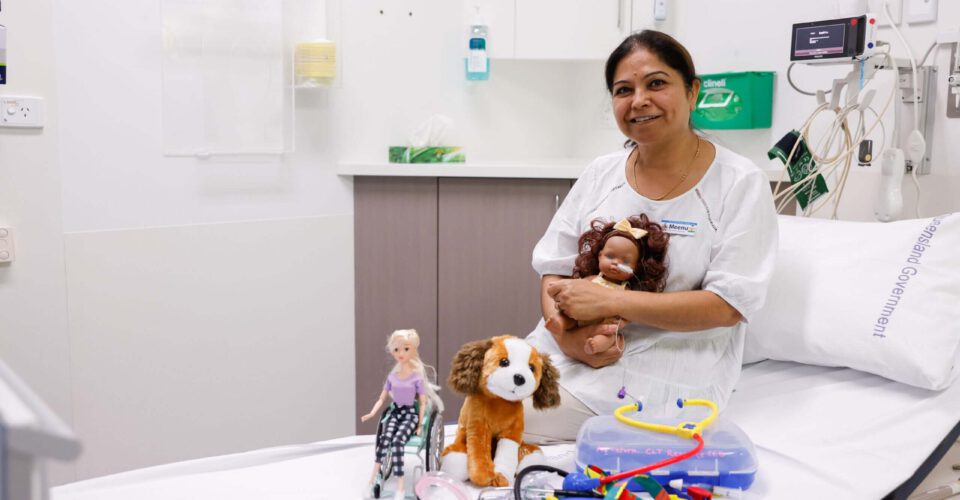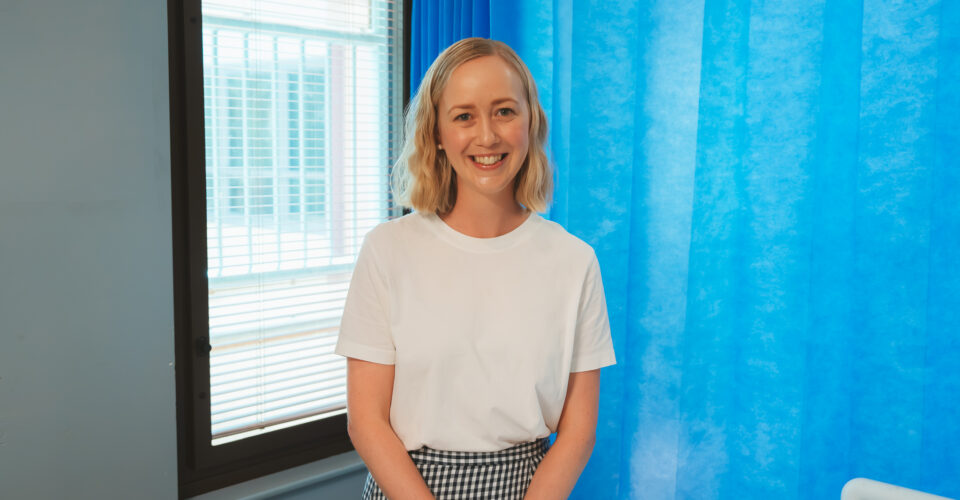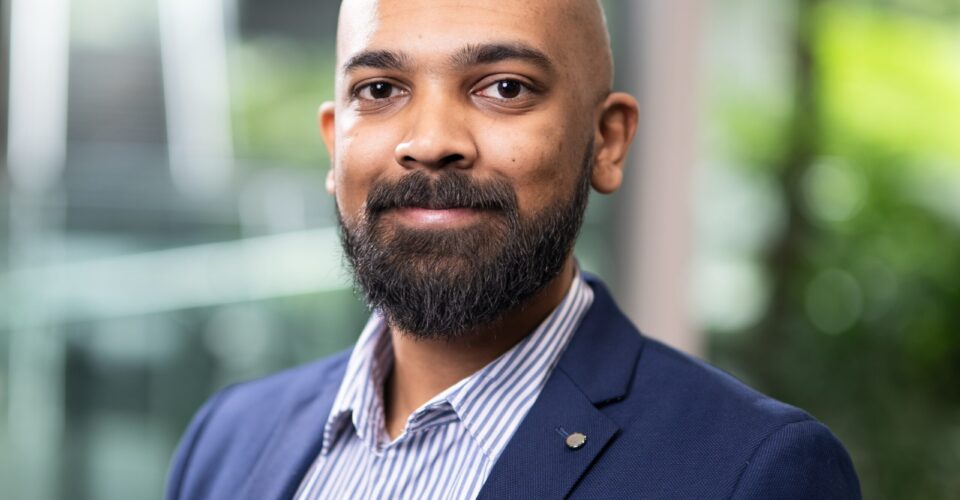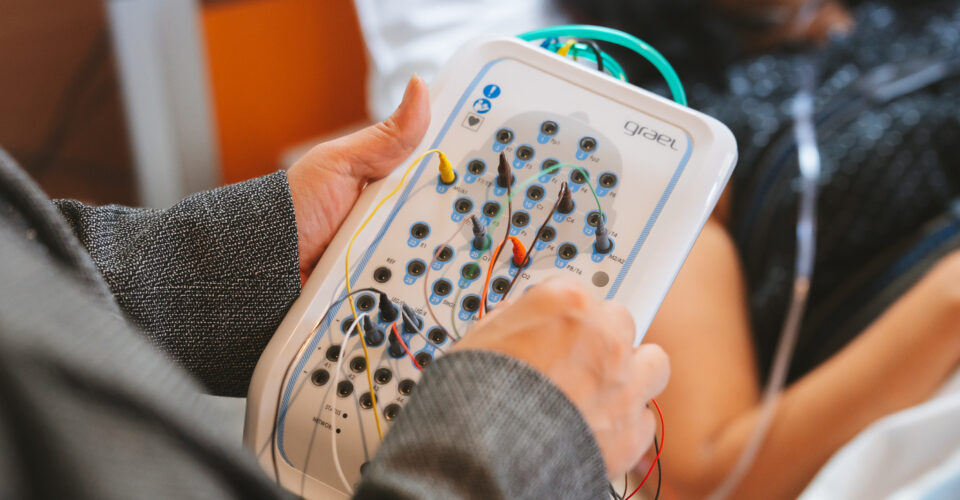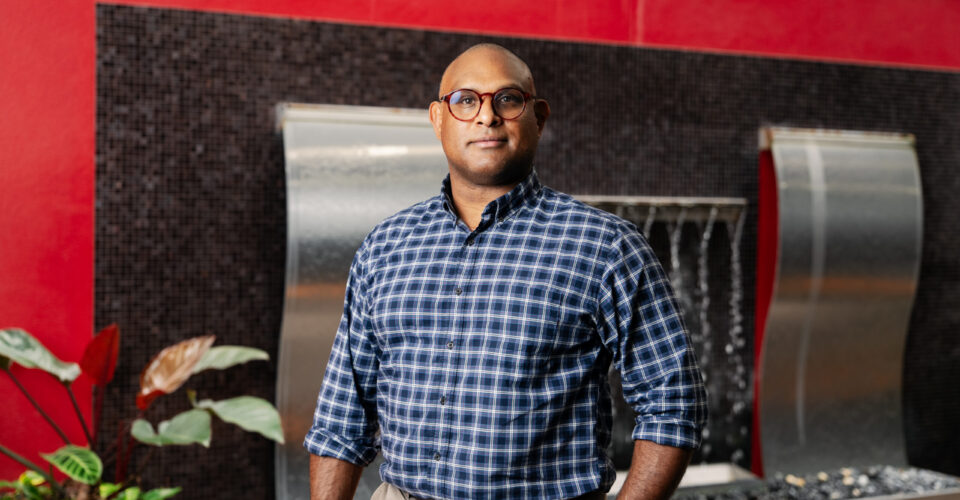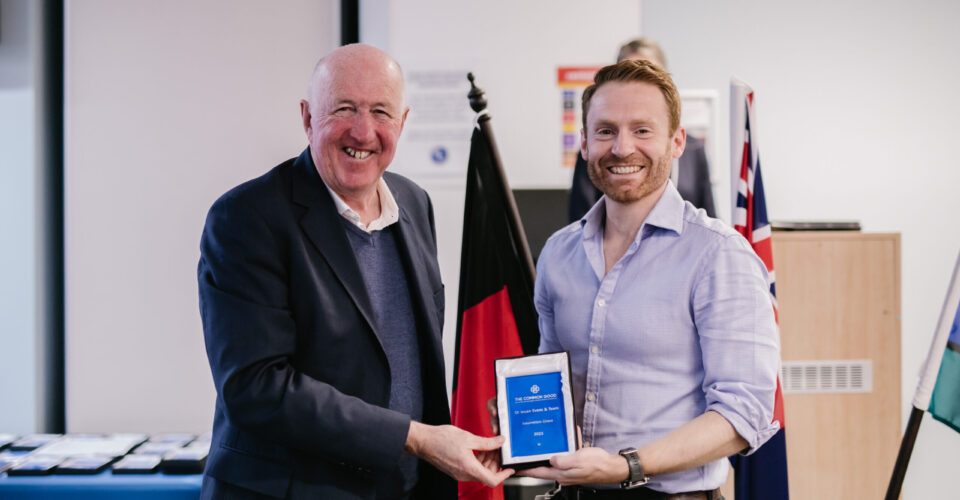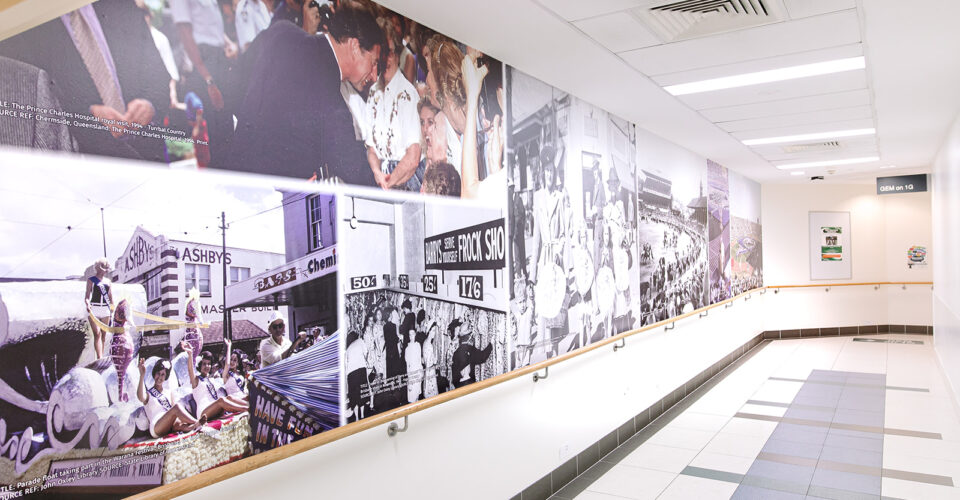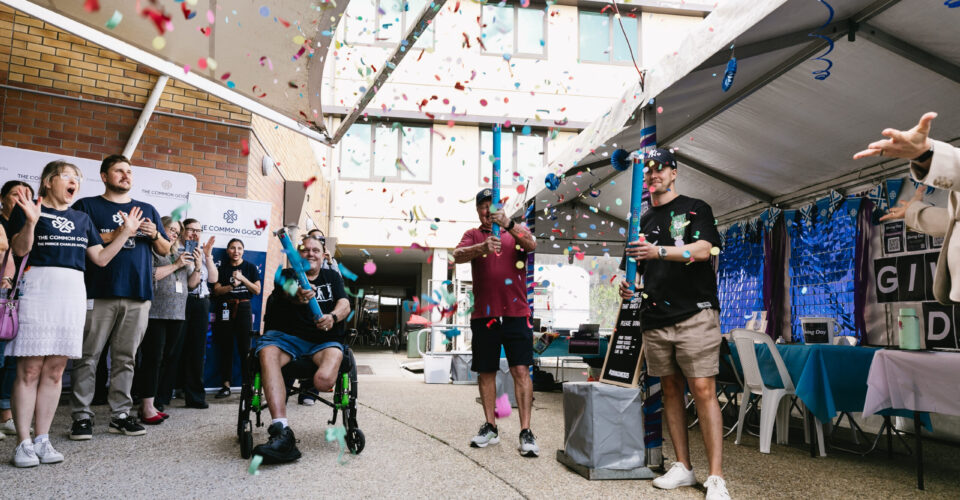Community-funded Child Life Therapy Program eases hospital stays for young patients
For sick or injured children who need hospital care, the pain and illness they’re experiencing can be overwhelming – as can the fear of the unknown and the sense of helplessness about not being in control of their treatment and its outcome. But in 2022, an invaluable Child Life Therapy Program was created at The Prince Charles Hospital to help alleviate the worries of some of the littlest paediatric patients.
This role of the Child Life Therapist was initially a pilot program funded for one year through The Prince Charles Hospital Foundation and its initiative, The Common Good, thanks to the Hospitals United for Sick Kids initiative (formerly Curing Homesickness) and its major partner Coles. In 2023, the Child Life Therapist became a permanent position within the Children’s Services.
Meenu uses play-based interventions including positive distraction techniques to minimise children’s fear and anxiety to improve their coping in clinical environments. She helps to prepare children for medical procedures by explaining the process in an age-appropriate way, aiming to empower them by dispelling fears and clarifying any misunderstandings.
“Working closely with families, I collaborate to create coping strategies that provide a sense of control in challenging situations. I use play as a tool to connect with children effectively. Play within the hospital environment fosters a feeling of well-being and safety. The ‘felt safety’ helps me get through to them (the children) even when they’re overly anxious,” said the hospital’s Child Life Therapist, Meenu Wadhwa.
“My approach is rooted in family-centered trauma-informed care principles, recognising that supporting parents is often as vital as preparing the children for procedures. Children’s fears may not always revolve around the procedure itself, as demonstrated by a 14-year-old patient who was recently anxious about potential hospital admission following cannulation.”
In 2023, a study evaluating the potential impacts and benefits of the Child Life Therapist role at The Prince Charles Hospital began. This study is titled: “Exploring the role of child life therapy in emergency: Children’s emotional coping, healthcare experience and economic impact”.
There are few Child Life Therapist positions around the country, and as such, there is very little literature exploring how they may help to improve patient experience or how the benefits of this ripple to other areas of care, including economic impacts such as whether or not it helps to lower the use of sedation, reduce a patient’s length of procedure and stay, and decrease the number of staff needed to carry out procedures.
Specifically, this study seeks to answer four questions:
- Does use of sedation, staff time and the number of staff involved in the procedure differ between children receiving and not receiving child life therapy while undergoing closure of laceration and cannulation procedures?
- Do children’s emotional coping and pain differ depending on whether they are receiving child life therapy or not during closure of laceration and cannulation procedures?
- What are children’s and their parents/guardians’ experiences of the Child Life Therapist role during their stay in children’s emergency?
- What are the multi-disciplinary team’s perceptions of the role and impact of Child Life Therapists in children’s emergency?
Several methods are being used to collect the data, including a questionnaire that parents/guardians fill out immediately after a procedure. If able, children also provide feedback about their experience, including telling their treating doctor or nurse about how worried they felt and rating their pain levels. The children in this study are between 4 and 16 years old who either have a laceration requiring sutures or require cannulation and/or blood to be drawn.
“Part of the study will also include staff interviews with multi-disciplinary team members who’ve been exposed to the service for more than a year, providing a qualitative exploration of how it’s been going,” said Dr Hannah Gullo, one of the study’s co-investigators.
“I guess the hope is to demonstrate that it is effective and beneficial – and that every hospital should have a Meenu.”
